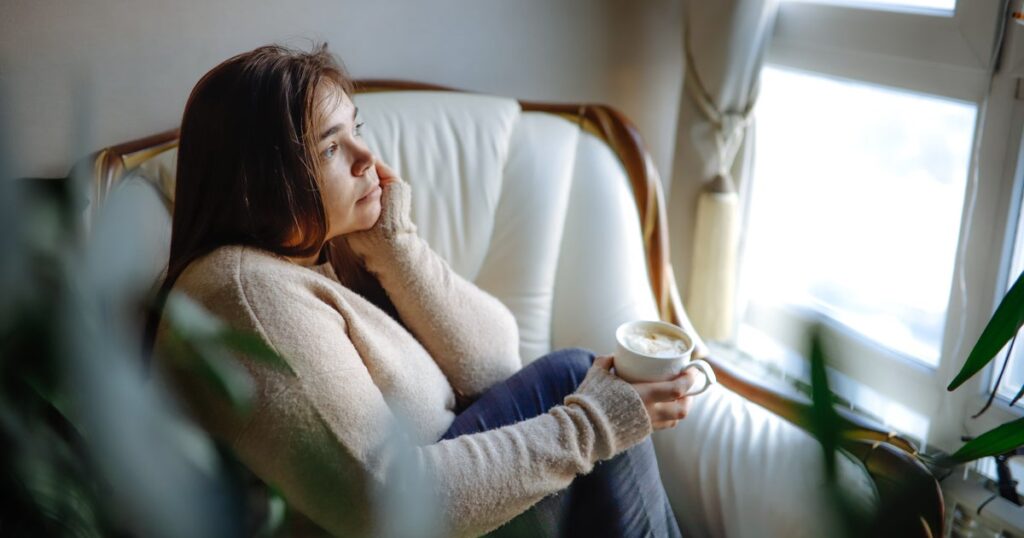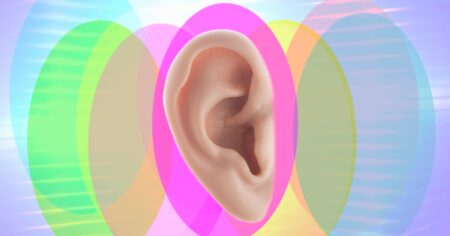By now, it’s common knowledge that we’re facing a loneliness epidemic. You’ve probably come across the go-to advice for anyone feeling lonely: Get out there and hang out with people. Join a running group or book club. Get dinner with your friends. Exchange pleasantries with the barista.
But what happens when the prescription for loneliness becomes the very thing that causes it?
If you’ve ever come home after spending time with others only to find yourself feeling sad, you have likely experienced “contrast loneliness.” Los Angeles-based therapist Lindsey Rae Ackerman told HuffPost that this phenomenon is also called post-social loneliness ― and it’s not uncommon.
Helene D’Jay, a licensed professional counselor and the executive director of young adult services at Newport Healthcare, shared that it’s a total misconception to believe that being surrounded by others makes it impossible to be lonely. You can feel lonely while you are hanging out with others as well as afterward, she explained.
Understanding why post-social loneliness happens and what to do about it can help with figuring out the type of social interactions that can be most meaningful to you, making feeling this way less likely.
What causes contrast loneliness?
First, it’s important to know that there is absolutely nothing wrong with you if you feel lonely after hanging out with people.
“It’s normal to feel this way from time to time. It’s not realistic to expect every single interaction with a friend to be amazing,” said Kasley Killam, a Harvard-trained social scientist and author of “The Art and Science of Connection.”
That said, some people are more prone to feeling this way than others. Killam said introverts may be more likely to experience contrast loneliness because they’re more prone to feeling tired and in need of alone time to recharge their social batteries after too much stimulation or after spending time with people they don’t feel a close connection with.
“Individuals who are depressed, anxious or struggling on the inside may feel lonely around others due to their internal negative self-talk, which may interfere with being present and in the moment,” noted clinical psychologist Paul Losoff.
For example, if you go out to dinner with friends but spend the whole meal in your head about how you aren’t as interesting or successful as everyone else at the table, you may go home feeling unfulfilled by the evening. Ditto if you go home and spend the rest of the night replaying everything you said during the meal and judging yourself. This could lead to feeling lonely afterward too.
If you felt like you couldn’t be your true self, Losoff said, this can also lead to contrast loneliness.
“Perhaps [someone] didn’t feel like they were able to be their genuine self, or they might have felt misunderstood, unheard, unacknowledged or unappreciated. All of these dynamics are likely to lead people to feel lonely and alienated despite actually spending time around others,” he said.
Going through a hard time, such as a recent loss, can also make it more likely to experience contrast loneliness. “Depression can cause people to feel lonely even when in the company of others,” said Julianne Holt-Lunstad, a professor of psychology and neuroscience and director of the Social Connection & Health Lab at Brigham Young University.
Holt-Lunstad said one of the most common causes of contrast loneliness is unmet social expectations, or the discrepancy between your desired level of connection and actual connection. Maybe you expected to get more out of meeting up with a friend, like a deeper conversation than you ended up having or you just thought you would have more fun. If so, Holt-Lunstad said, it’s normal to feel let down afterward.
“Superficial interactions in a social setting can make people feel lonely afterward if someone craves a deeper emotional connection to feel fulfilled,” D’Jay said. “With these types of social settings, balance is key because light socializing is normal and not every social activity can have a meaningful connection.”
Or maybe you were looking forward to a social event so much that you’re bummed it’s over. D’Jay explained that this is called post-event blues. She added that it’s possible to experience a similar feeling if you know you’re not going to see the friend or friends you met up with for a while. Sometimes, we don’t realize how much we miss someone until we spend time with them.
Giselleflissak via Getty Images
Here’s how to deal with contrast loneliness.
So obviously there are a whole slew of reasons for feeling lonely after spending time with others. The next big question is: What can you do about it?
All of the experts we spoke with say there are ways to manage contrast loneliness in the moment as well as ways to make it less likely to happen in general.
If you are smack dab in the middle of experiencing post-social loneliness, Ackerman said it can be helpful to practice self-compassion. Remind yourself that nothing is wrong with you; the social situation just didn’t meet your expectations.
When you’re reflecting, Losoff said it can be helpful to think about what a “do-over” would look like. Do you wish you had hung out with someone one-on-one versus in a big group? Would you have changed the setting or activity? This can all be helpful insight when planning future hangouts.
Killam said it can also be helpful to think about social interactions that have left you feeling fulfilled. Who were they with and what did you do? “Start to recognize patterns and then choose opportunities where that’s more likely,” she recommended.
Just because a certain type of social interaction left you feeling meh doesn’t mean you should avoid it in the future completely.
“Any type of social interaction that didn’t meet your expectations could potentially lead to feeling lonely. This does not mean that you should avoid these, but rather understand why they may be leading to feeling lonely,” Holt-Lunstad said. “Social interactions are complex. Negative interactions could be the result of the situation, characteristics or behaviors of the other person, your own characteristics and behaviors, your interpretation or some combination.”
Ackerman said it can also be helpful to reframe the experience. What are the positive parts of the experience you can focus on? There’s a reason so many mental health experts preach the importance of practicing gratitude: It works.
“If you had a great time and felt connected when spending time with others but then feel lonely afterward because it is over, you can take little steps to sustain the connection,” said Holt-Lunstad.
For example, she said, you can share photos from the get-together, follow up with those you connected with, and make plans to get together again. “Each of these can help to maintain that sense of connection,” she said.
If consistent feelings of loneliness are really getting to you, Losoff and D’Jay both told HuffPost that therapy could be beneficial. A therapist can help you figure out the root causes of your loneliness and specific ways to combat it that work for you.
Remember: Anyone can feel lonely. It doesn’t matter if you are young or old, single or married, work remotely or around others.
“Chronic loneliness is a silent epidemic and the hard part is that it takes a tremendous amount of courage to come out of one’s shell,” Losoff said. “Certainly, therapy can help an individual feel connected and heard. I would encourage anyone who is feeling this way to take the step to let their trusted family or friends know that they are struggling this way. Sometimes just communicating loneliness is the key to feeling more connected.”
The bottom line is that connection can help combat loneliness. Experiencing post-social blues may be a sign that the social interaction you had was missing the type of connection you craved. Pinpointing what meaningful connection looks like for you can help — and it will likely help the person you’re connecting with feel less lonely too.
Read the full article here








